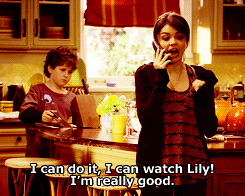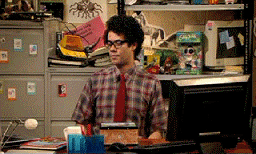We’ve all been there—waiting by the phone for a call that doesn’t come as feelings of frustration kick in at the realization that you didn’t get the job. It’s time to job search, again. Learning to cope with job rejection is important. Before refreshing Indeed, take the time to evaluate what went wrong and how you can improve for next time.
Now, it’s safe to say, we don’t know the exact reason you didn’t get the job. The reason could be simple. Maybe another candidate was the boss’s family friend. Maybe your interviewer was allergic to the cat hair you dragged in. Who knows! We sure don’t. Truth is, though, all that you can do is put your best foot forward. On your way, here are some ideas of how to grow from this experience and become a stronger interviewee for next time.

pathdoc / Shutterstock.com
Let’s start with eight of the biggest interview mistakes:
- Bad-mouthing a past employer.
- Arriving late to the interview or being unprepared.
- Submitting a poorly written résumé or cover letter.
- Not following up with a thank-you note.
- Being impolite.
- Not demonstrating an understanding of the position or business.
- Highballing the answer to the question, “What salary are you looking for?”
- Being the wrong fit for the work environment (e.g., too relaxed for a quick-paced company or too serious for a relaxed work environment).
If you avoid these mistakes and are qualified for the position but still didn’t get the job, then it might come down to something else: either you didn’t really want it or you desperately wanted it. Does that sound absurd? Of course, but when you stop and take a moment to think about it, you might realize it’s true.
You really, really wanted it.
Often, when we really want something, we overthink the possibilities. We build a hypothetical reality around a dream job, and as a result, we put a lot of energy into the idea of attaining that position. Think of this as your ticket to the One Step Forward, Two Steps Back ride at a carnival. Madness!
Having a job is important for obvious reasons, but you can’t bank on one interview because you will mentally exhaust yourself and close doors to other opportunities. Mental exhaustion is when you feel burned-out both physically, mentally, and emotionally. Noticing how much energy you devote to one thing is important to avoid potential burnout.
Here’s a story for you. There once was a girl, let’s call her Haley.

Modern Family / Giphy
Haley had just graduated college and had wanted to work for Glamour Magazine since the first time she read an article on summer styles and 100 great five-minute hairdos. When she received an offer to interview for an entry-level position, she screamed with such excitement that the neighbors nearly called the police. She practiced her interview, wrote out every reason to hire her, and researched the company until her eyes were too heavy to keep open, but after the interview, she waited by the phone and never got the call.
She was crushed. She was highly qualified, hard working, passionate, and … crushed.
Despite all of the reasons she would have been perfect for the position, they gave it to someone else. What happened in the interview was this: Haley wanted the job so badly that she became nervous and couldn’t stop talking. Some might say she was over prepared because she wanted to tell the hiring manager every single reason why she belonged at Glamour, whether she was asked or not.
This case of overcompensation left the hiring manager with the impression that Haley would be hard to train and lacked courtesy for higher-ups. As you can see, wanting a job too much can backfire. It can cause your nerves to go through the roof and make you act less like yourself. Employers notice these social cues and see them as red flags.
Here’s what you should do next time:
Job hunting is stressful, time-consuming, and sometimes disappointing. Be wary of mental exhaustion and find ways to cope throughout the process of your search. Each day, wake up and give yourself time to do something that relaxes you, like writing, walking, or listening to your favorite music before diving into interview preparation. Get a good night’s sleep, eat a healthy meal, and leave plenty of time to get to the interview. That way, when you arrive, you can bring your best performance instead of stumbling in slightly sweaty and severely stressed out. Take a deep breath and stay cool, calm, and collected. Don’t stress it. You’ve got this!
Deep down, you didn’t actually want the job.
This sounds outlandish, I know, but it’s true more often than most of us want to admit. When you’re job searching, you look for anything that you might qualify for. Out of—dare I call it—desperation? You apply to everything that Indeed suggests, without asking yourself, “Do I want to commute this far? Get paid so little?” and so on and so forth. But then, all of a sudden, you’re sitting with the hiring manager, things are looking good, and you don’t follow up afterward because deep down, you didn’t actually want the job.

The It Crowd / Giphy
It didn’t take precedent in your mind. You didn’t put enough energy in. You didn’t look up the building beforehand, you left the hiring manager waiting for 10 minutes, you showed up with a wrinkled shirt and forgot important materials (e.g., copy of your résumé, cover letter, or letter of recommendation).
It didn’t take precedent in your mind because there is something you want more.
Now is the time to regroup.
Here’s what you should do next time:
Ask yourself what was taking up your thoughts over this job. Were you picturing yourself doing the job and not seeing a smile on your face? Or was it the location that bothered you? If you do not feel satisfied with the position that you are interviewing for, the hiring manager will pick up what you’re putting down. No matter how you verbally answer her questions, your interest will be conveyed through your actions.
The moral of the story, the position just wasn’t meant for you. When you’re struggling to make ends meet, that’s really hard to hear, but listen, the right job is on its way. Now you have the right tools to tweak your interview skills, and next time, you’ll nail it.
-
12 Things You Should Not Put on Your Résumé
-
Are Minors Necessary?
-
Eight Job Hunting Tips and Resources
-
Do Employers Look at More than Your Résumé and Transcripts?
-
Lessons You Can Learn from Working a Minimum Wage Job
-
Choosing Electives with Purpose
-
Co-ops (Cooperative Educational Experiences) in College
-
How to Turn Your Hobby into a Résumé Boost
-
Five Reasons to Consider an Online Master’s Degree
-
Public Speaking: How to Use Your Voice to Climb to Success
-
In-Demand Vocations That Are Hiring Right Now
-
Introducing Breakthrough Providence

